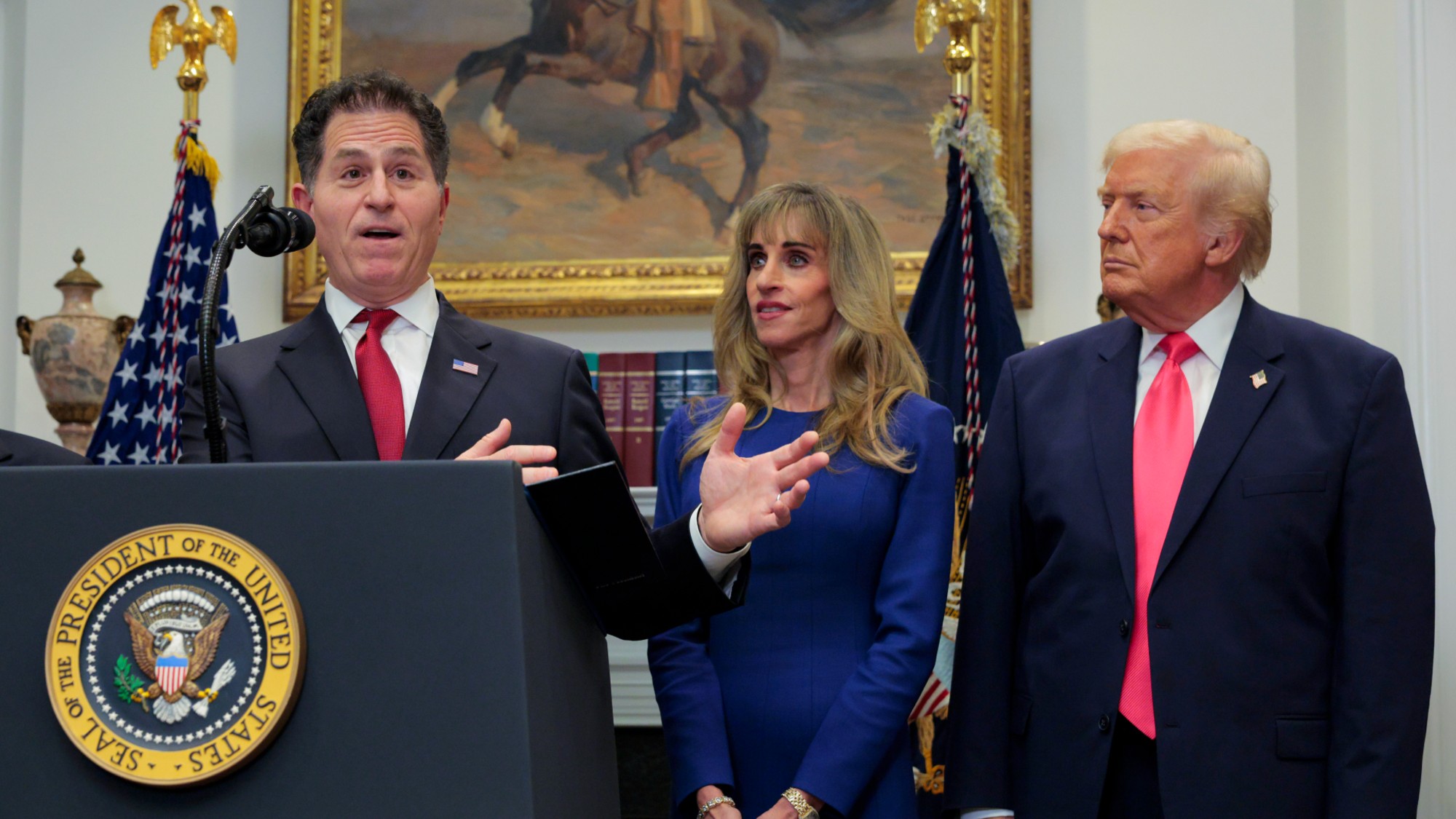Theresa May 'plans vote on Syria air strikes if Tories win election'
Prime Minister reportedly ready to ask MPs to reverse 2013 vote if she wins a sizeable majority

A free daily email with the biggest news stories of the day – and the best features from TheWeek.com
You are now subscribed
Your newsletter sign-up was successful
Theresa May is reportedly considering calling parliament to vote on joining US air strikes in Syria if the Tories win a large enough majority in June's general election.
According to the Daily Mirror, the Prime Minister wants MPs to approve future action in the event of a chemical attack by President Bashar al-Assad's regime.
However, adds the paper, such a vote "will spark fears of mission creep, forcing Britain to suffer another Afghanistan and Iraq-type war".
The Week
Escape your echo chamber. Get the facts behind the news, plus analysis from multiple perspectives.

Sign up for The Week's Free Newsletters
From our morning news briefing to a weekly Good News Newsletter, get the best of The Week delivered directly to your inbox.
From our morning news briefing to a weekly Good News Newsletter, get the best of The Week delivered directly to your inbox.
At least 86 people were killed in a chemical weapons attack in the rebel-held town of Khan Sheikhoun, in Idlib province, last month. Traces of a nerve agent similar to sarin were found in the blood of victims.
While Assad's forces denied responsibility, Donald Trump launched a retaliatory strike against a Syrian airbase.
The government is now convinced the Syrian leader was behind the attack, the Mirror says.
May would need to reverse the vote of 2013, when MPs ruled out military action against Assad following a previous alleged chemical attack, to approve the use of planes, warships and submarines.
A free daily email with the biggest news stories of the day – and the best features from TheWeek.com
While Foreign Secretary Boris Johnson has indicated the government could carry out air strikes without parliament's backing, The Guardian says the Prime Minister would rather have its approval.
Johnson also said last week that he and May believe it would be "very difficult" for the UK to decline future requests from the US to join air strikes in the event of another chemical attack.
Britain is already aiding the US in military action in Syria and Iraq, with RAF warplanes hitting Islamic State targets in both countries, although the government has not yet participated in air strikes against the Assad regime.
May has made defence a key issue in her campaign against Labour leader Jeremy Corbyn, who in April said he would move to suspend air strikes in Syria and prioritise peace talks instead.
-
 Local elections 2026: where are they and who is expected to win?
Local elections 2026: where are they and who is expected to win?The Explainer Labour is braced for heavy losses and U-turn on postponing some council elections hasn’t helped the party’s prospects
-
 6 of the world’s most accessible destinations
6 of the world’s most accessible destinationsThe Week Recommends Experience all of Berlin, Singapore and Sydney
-
 How the FCC’s ‘equal time’ rule works
How the FCC’s ‘equal time’ rule worksIn the Spotlight The law is at the heart of the Colbert-CBS conflict
-
 Local elections 2026: where are they and who is expected to win?
Local elections 2026: where are they and who is expected to win?The Explainer Labour is braced for heavy losses and U-turn on postponing some council elections hasn’t helped the party’s prospects
-
 How corrupt is the UK?
How corrupt is the UK?The Explainer Decline in standards ‘risks becoming a defining feature of our political culture’ as Britain falls to lowest ever score on global index
-
 The high street: Britain’s next political battleground?
The high street: Britain’s next political battleground?In the Spotlight Mass closure of shops and influx of organised crime are fuelling voter anger, and offer an opening for Reform UK
-
 ‘These accounts clearly are designed as a capitalist alternative’
‘These accounts clearly are designed as a capitalist alternative’Instant Opinion Opinion, comment and editorials of the day
-
 Is a Reform-Tory pact becoming more likely?
Is a Reform-Tory pact becoming more likely?Today’s Big Question Nigel Farage’s party is ahead in the polls but still falls well short of a Commons majority, while Conservatives are still losing MPs to Reform
-
 Taking the low road: why the SNP is still standing strong
Taking the low road: why the SNP is still standing strongTalking Point Party is on track for a fifth consecutive victory in May’s Holyrood election, despite controversies and plummeting support
-
 Syria’s strange post-Assad election
Syria’s strange post-Assad electionThe Explainer Sunday’s limited vote ‘suited the phase Syria is undergoing’, says interim president
-
 What difference will the 'historic' UK-Germany treaty make?
What difference will the 'historic' UK-Germany treaty make?Today's Big Question Europe's two biggest economies sign first treaty since WWII, underscoring 'triangle alliance' with France amid growing Russian threat and US distance